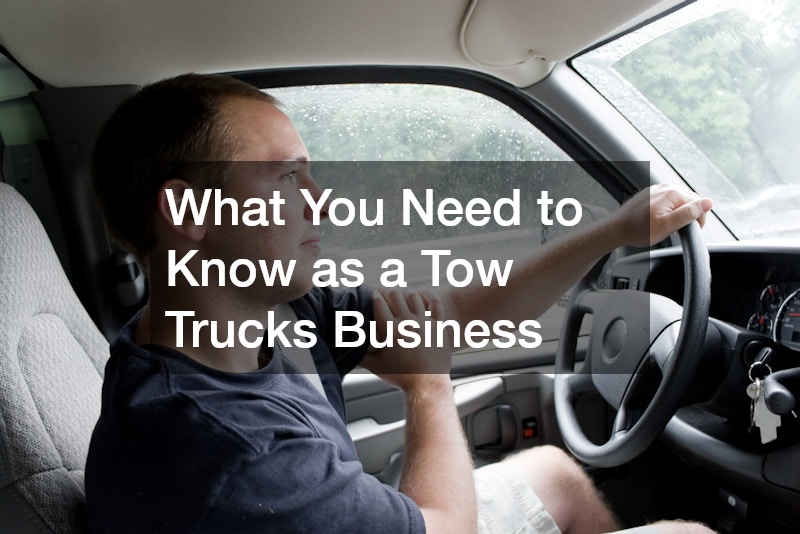Starting and running a tow truck business can be both challenging and rewarding. This guide will provide you with essential information and insights to help you navigate this industry effectively. We’ll answer some of the most frequently asked questions and explore the critical aspects of running a successful tow truck business.
1. What are the Legal Requirements for Starting a Tow Truck Business?
A. Licensing and Permits
Obtaining the necessary licenses and permits is the first step in establishing a legitimate tow truck business. Each state or country has its regulations, but typically, a commercial driver’s license, a business license, and a tow truck permit are required.
It’s crucial to thoroughly research the specific requirements for your location to ensure compliance and avoid fines. Consulting with a legal expert can streamline this process and help you get started more efficiently.
In addition to vehicle-related permits, you may also need zoning permits if you plan to operate a tow truck yard. These permits are essential to ensure that your business activities are carried out in an area designated for such operations. Investing time and resources in securing all necessary permits can protect your business in the long run.
B. Insurance Requirements
An overview of the types of insurance policies is crucial as they protect your business from potential liabilities. Tow truck businesses typically require commercial auto insurance, liability insurance, and garage service insurance, among others. Investing in comprehensive insurance policies helps to mitigate risks associated with accidents, injuries, or property damage. A well-rounded insurance policy can also enhance your business’s credibility, making it easier to secure contracts with clients.
You should consult with an insurance broker who specializes in the towing industry to understand the best policies for your unique needs. Tailoring your insurance coverage to include workers’ compensation and coverage for personal property can save you from costly expenses. Proper insurance planning is not just a legal requirement; it is a critical element of risk management in your operations.
2. How to Effectively Manage Operational Costs?
A. Fleet Maintenance
Best practices for maintaining your tow trucks are essential to minimize operational costs and ensure reliability. Regular maintenance checks, including oil changes, tire rotations, and brake inspections, can prevent costly repairs in the future. Scheduling preventive maintenance not only extends the life of your vehicles but also ensures safety and efficiency. By implementing a robust maintenance schedule, you can reduce downtime and enhance your fleet’s performance.
Investing in quality parts and engaging certified mechanics can also contribute to lowering repair costs. Additionally, maintaining detailed records of service history helps you track expenses and plan accordingly. These proactive measures in fleet maintenance support long-term cost savings and operational reliability.
B. Fuel and Resource Management
Strategies for efficient fuel use include route optimization and regular engine tune-ups to ensure maximum mileage. Implementing GPS tracking systems offers real-time insights, enabling drivers to take the most efficient routes and avoid traffic. Moreover, training drivers in fuel-efficient driving techniques, such as smooth acceleration and braking, can contribute to significant cost savings. Ensuring that you monitor fuel usage regularly can help identify areas for improvement and minimize waste.
Additionally, negotiating fuel contracts with suppliers can result in discounts and fixed pricing, providing more predictability in budgeting. The use of telematics also allows for the optimization of resources and helps in effective decision-making. Adopting technology-driven solutions is instrumental in enhancing resource management and cost efficiency in your tow truck business.
3. What Strategies Can Help in Growing a Tow Truck Business?
A. Marketing and Customer Acquisition
Innovative marketing techniques like digital advertising and search engine optimization (SEO) are indispensable for attracting and retaining customers in this digital age. Establishing a strong online presence through a professional website and active social media accounts can significantly boost brand visibility. Creating content that highlights your services and customer testimonies builds trust and removes barriers to customer acquisition. Coupled with the right marketing strategies, these efforts can amplify your reach and reputation.
Effective customer acquisition also involves offering promotional deals or referral discounts to incentivize new clients. Engaging in community events and local partnerships can further expand your network and introduce your services to a broader market.
B. Networking and Partnerships
Building relationships with auto repair shops and law enforcement agencies can lead to steady business referrals. Collaborations with garages and other automotive service providers create a network of mutually beneficial partnerships. Establishing a credible reputation as a reliable partner encourages repeat business and client trust. By cultivating these relationships, you can open the door to consistent business opportunities.
Networking also plays a critical role in staying informed about industry trends and best practices. Attending industry conferences and joining professional associations enable you to connect with peers and gain invaluable insights.
4. How to Handle Competition in the Towing Industry?
A. Competitive Pricing Models
Developing pricing strategies that give you an edge involves understanding your competitors and the market dynamics. Offering competitive rates while maintaining quality services can position your business favorably among consumers. Flexibility in pricing, such as providing custom quotes or bundled services, can cater to diverse customer needs and enhance competitiveness. Pricing transparency also builds trust and prevents disputes.
Exploring different pricing models like subscription plans for frequent users or flat-rate services can differentiate your offerings. Keeping track of industry pricing trends ensures that you remain competitive without compromising profitability.
B. Differentiation and Unique Selling Points
Creating a niche or offering unique services that set you apart requires understanding your strengths and market gaps. Whether it’s superior customer service, rapid response times, or specialized towing capabilities, identify what makes you uniquely valuable. Tailoring your services to address specific needs or customer pain points establishes your business as the go-to choice. This clear distinction supports attracting customers and boosting brand loyalty.
Innovation in service offerings, such as digital payment solutions or eco-friendly towing options, can also provide a competitive advantage. Ensuring that your unique selling points are highlighted across all marketing channels reinforces your brand message.
.



